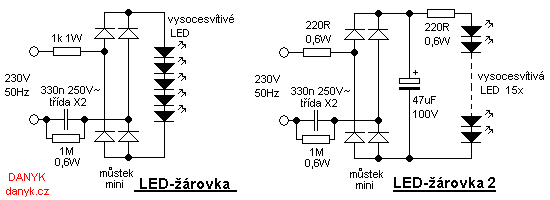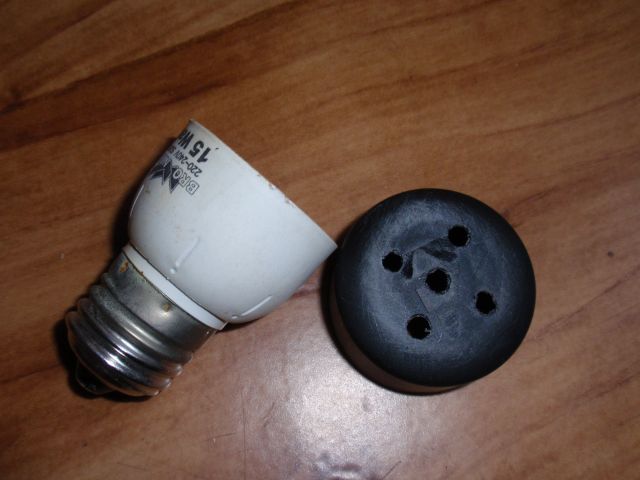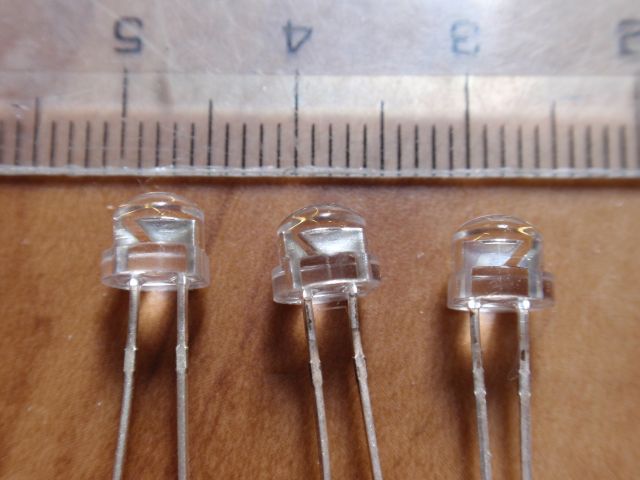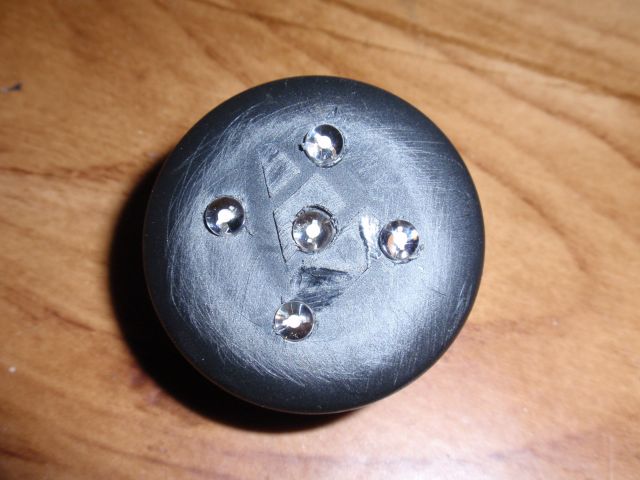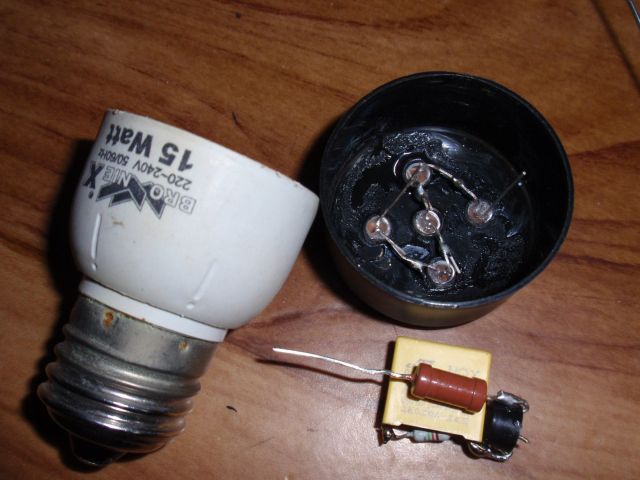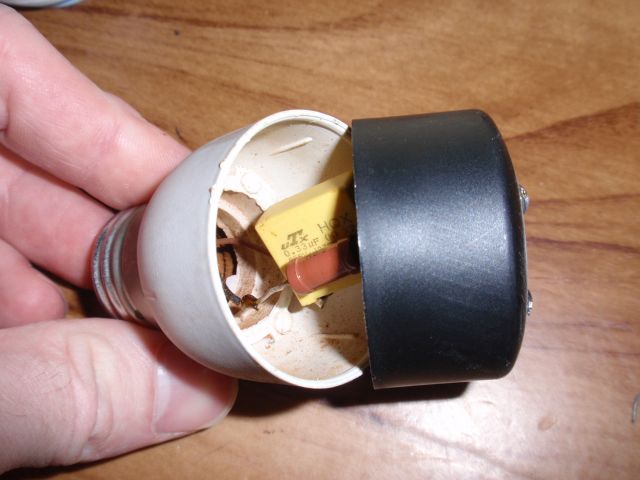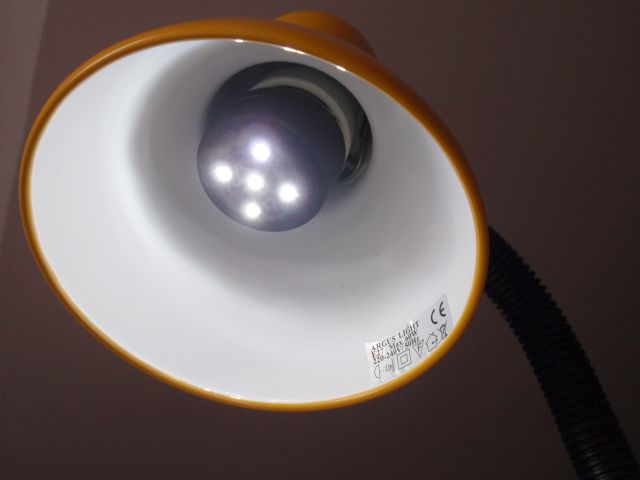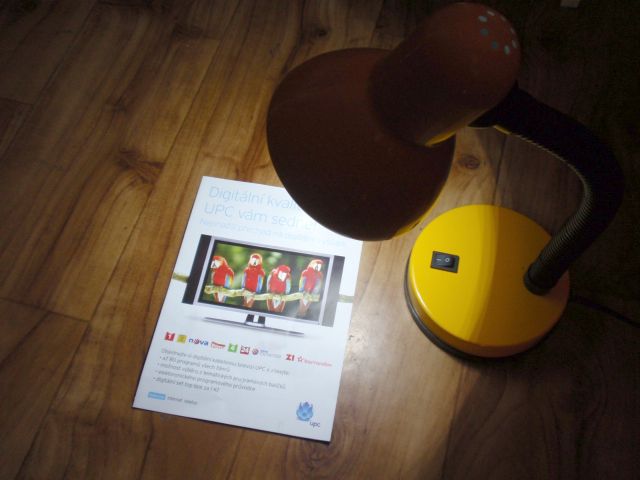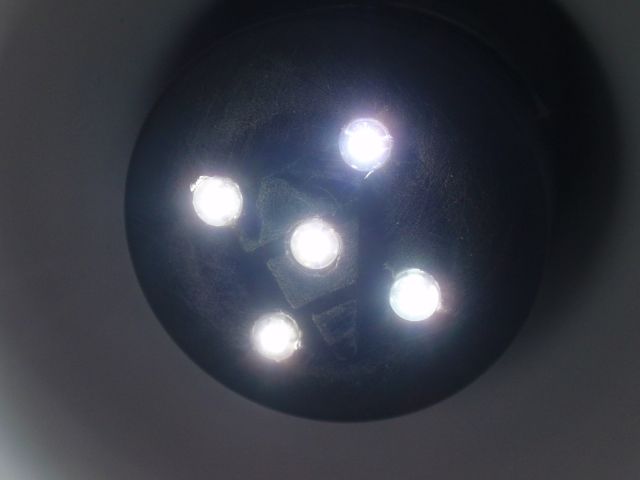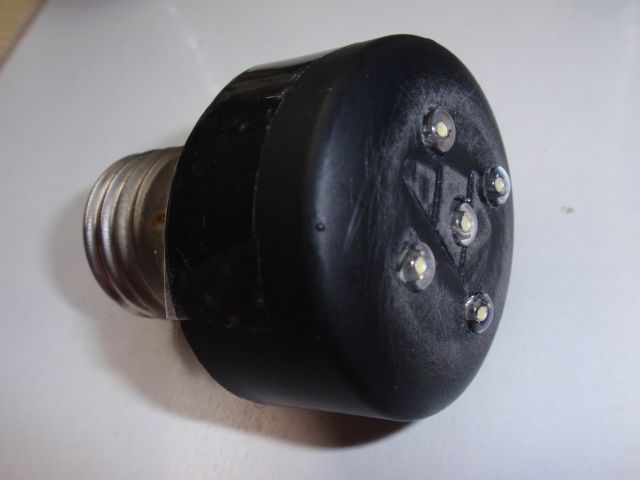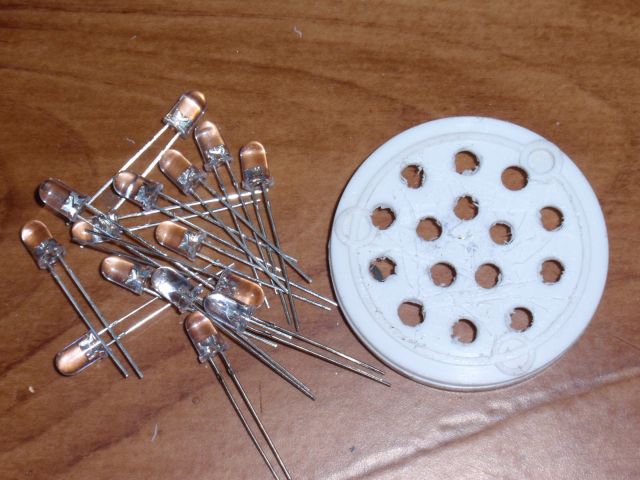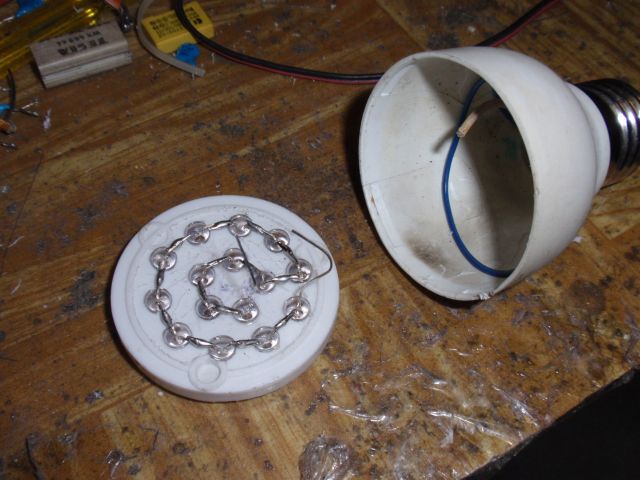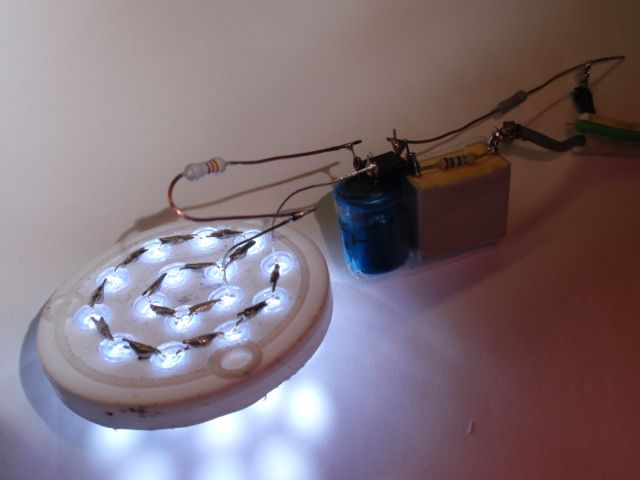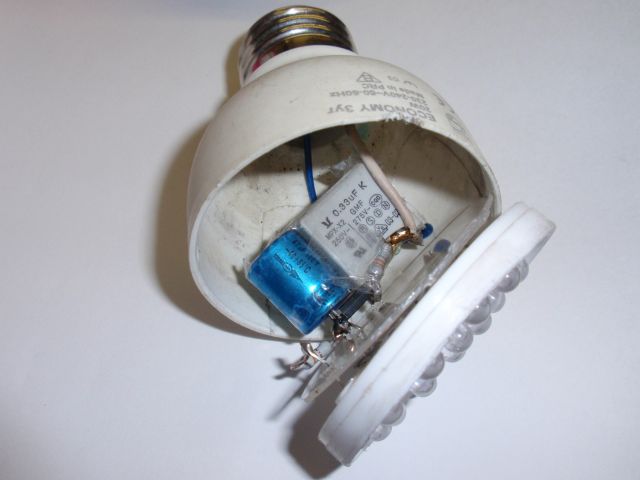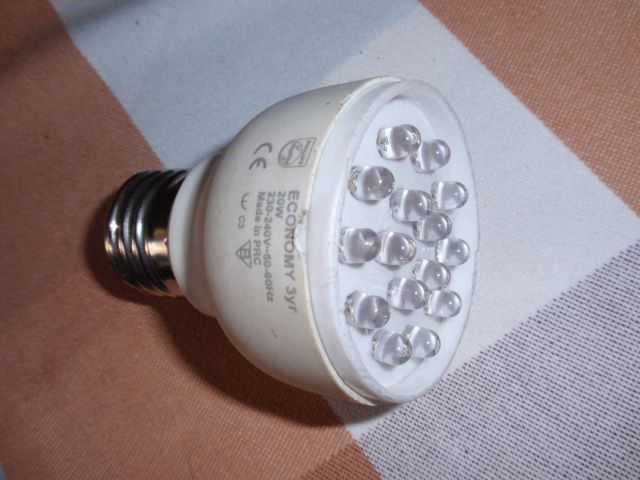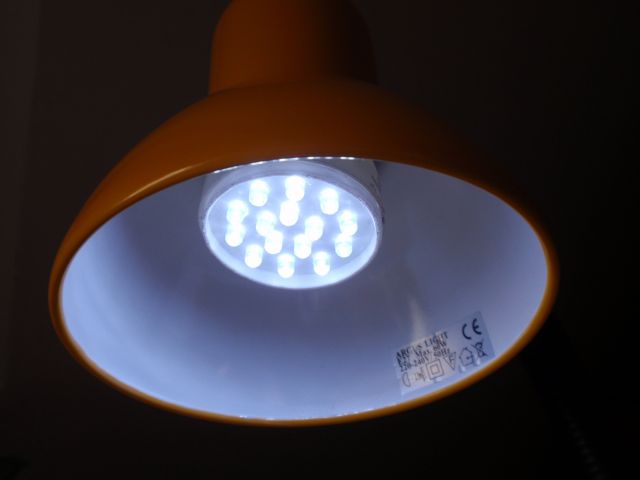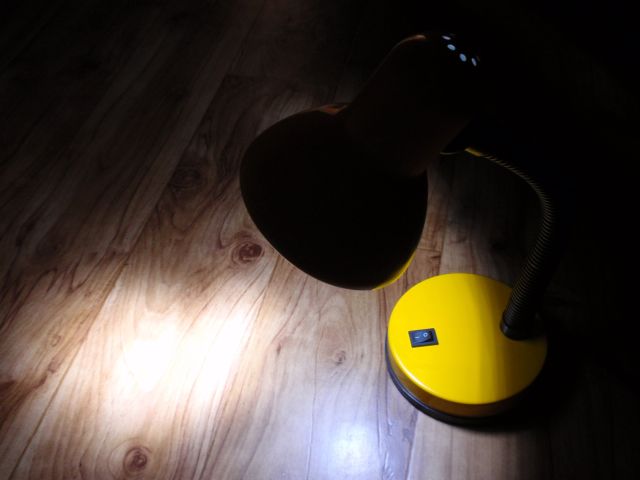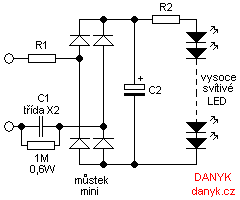LED lamps (light-emitting-diode lamps) sometimes also called solid state lamps or LED lightbulbs are becoming
very popular in last years. They are the economical source of light.
Although their ligth flux is usually (in 2010) not equal to the incandescent bulbs or energy saving fluorescent bulbs,
their advantage is very low power consumption, in most cases
0.5 - 3W. Fortunately, the power and light output of new LEDs is rapidly rising
every year because they are undergoing rapid technical develompent.
We can choose different colors, but probably reach for white LEDs.
The white LEDs have choice between different light temperatures, from warm white
imitating conventional bulbs to daylight (2700 - 10 000K). You also need to decide
between point and diffuser LEDs. These choices are many types of radiation from the angle
10 ° to 150 °. Price LEDs with technical progress continues to decline, the luminous efficiency
grows. Conversion of intensity to the light flux can in my online calculator.
To power the LED bulb from the mains it is needed to create a suitable power supply or ballast.
For low power and small sizes the transformer is not a good choice, therefore, is most commonly used precipitation capacity
using a capacitor to AC 250V ~ best in class X2. Resistance in series (220R - 2K2) is used
to limit inrush current. The capacitor is provided by a parallel security resistor around the 1M resistor, which
ensure its discharge after switching off. The reduced voltage is rectified by a small diode bridge.
Most of the LEDs are designed for the current 20mA, this current corresponds (in case o small number of LEDs) to around 330nF capacitor.
LEDs can be connected to series of different quantity, without changing the values of components to about 20. For larger quantities of LEDs and select a larger capacity. Online calculation
of the components of LED bulbs can be found below. The most common size of LED is 5mm.
For my first LED bulb i chosen 5 pieces of cold white LED 5mm with current of 20mA and a large angle of 150°.
I built it into the E27 base of the old compact fluorescent tube. These diodes
have luminance only 200mcd due to the large angle .
For the second LED bulb I chose 15pcs of 5 mm LED with a typical brightness of 15,000 mcd and an angle of 25-30°.
Its maximum current is 30mA, 3.1 V drop, lifetime 100 000h.
The socket is again from the E27 energy saver. Source is improved with the electrolyte. This eliminates
stroboscopic effect, and also protects the LEDs from inrush currents and spikes on the mains.
LEDs are provided with current of about 20mA. Light is pretty decent.
